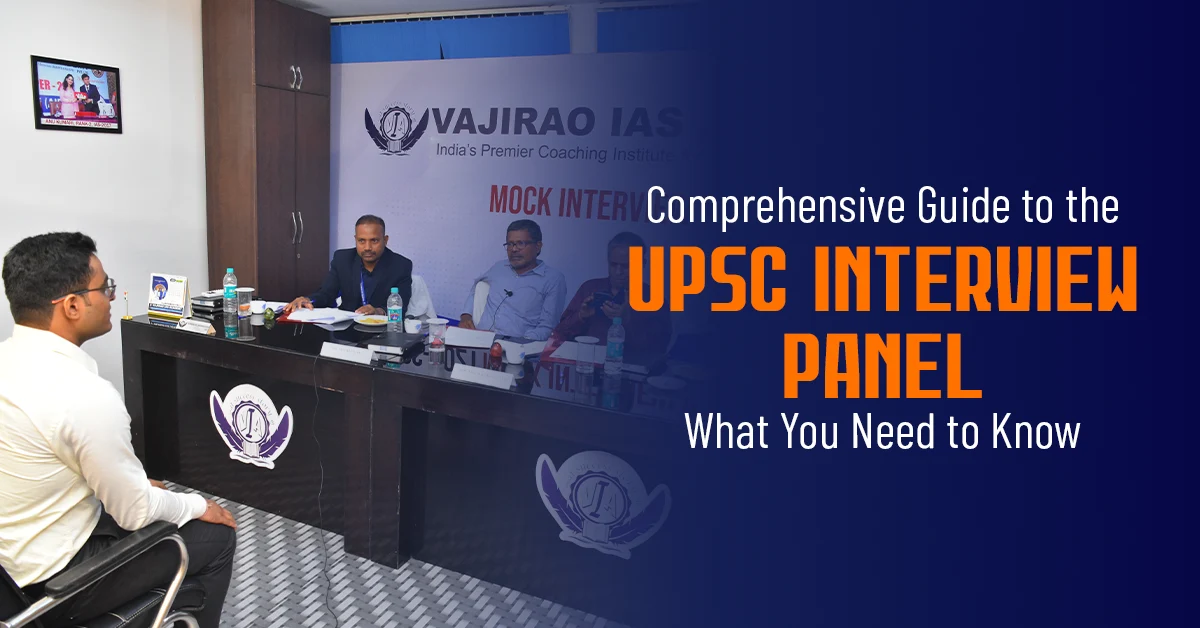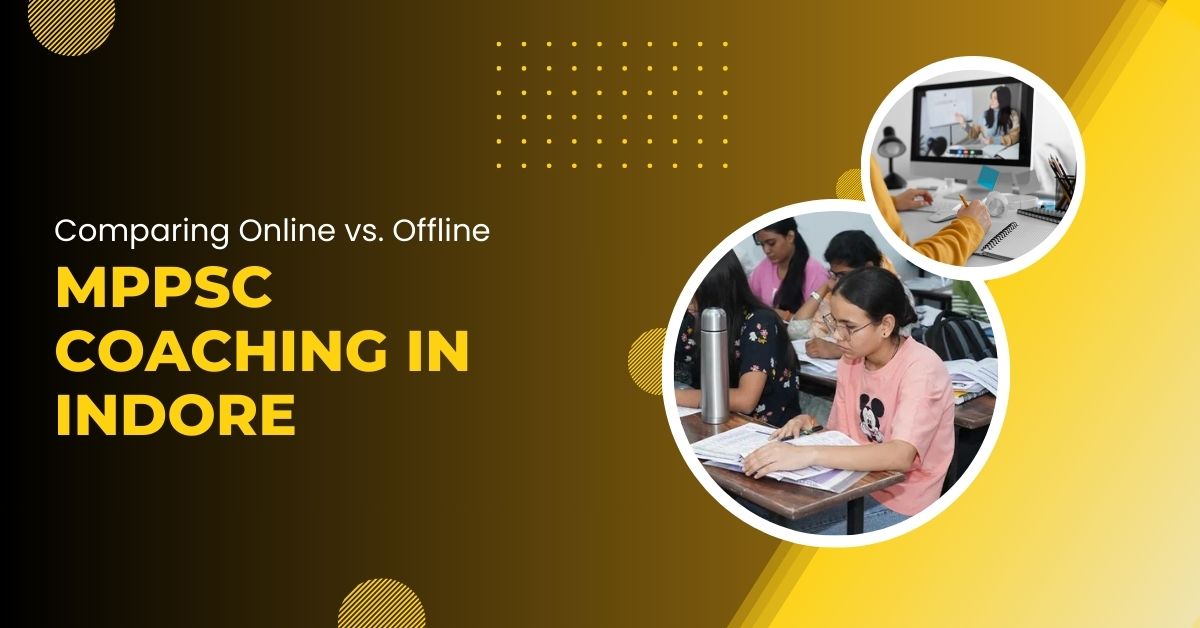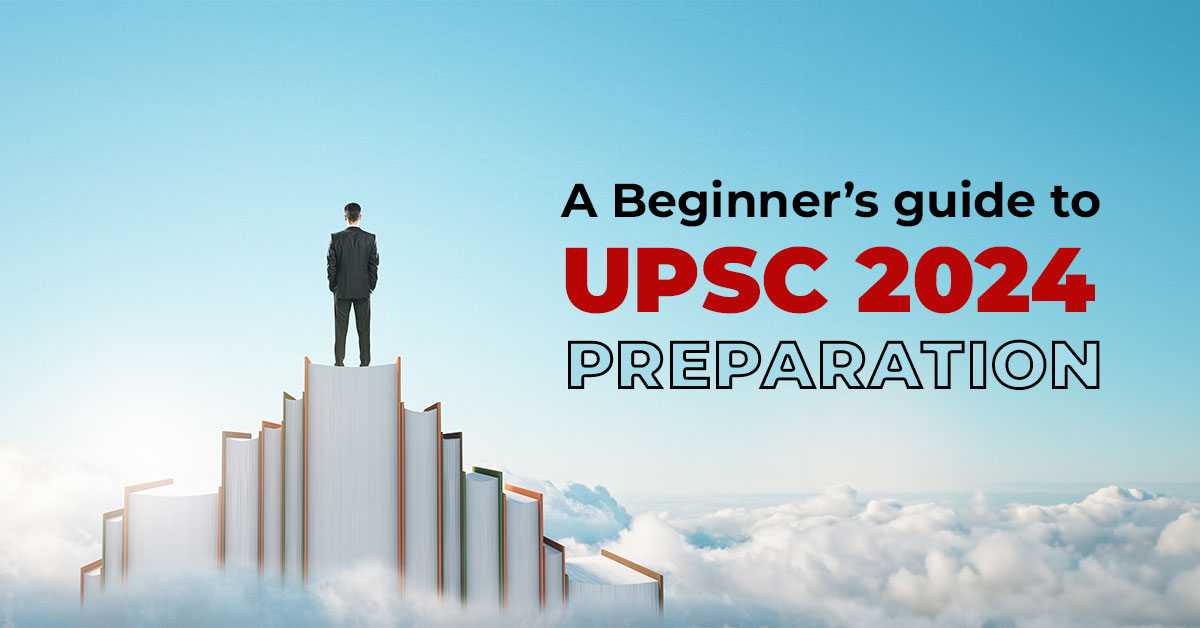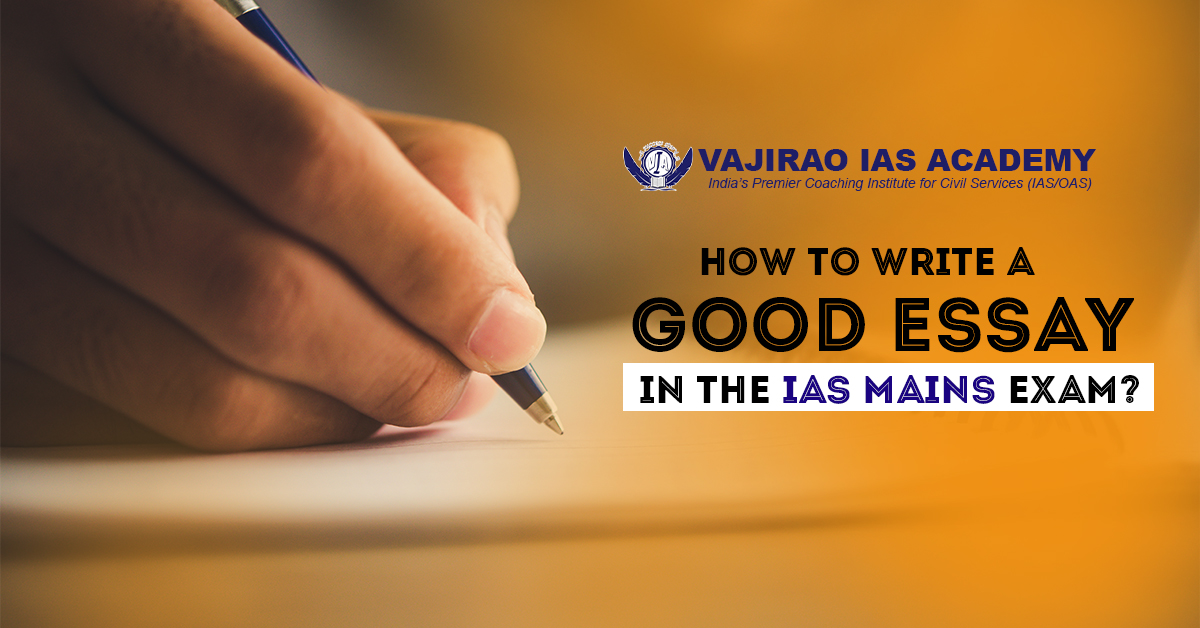Stepping into the hallowed halls where futures are forged, every UPSC aspirant knows that facing the interview panel is not just about answering questions; it’s about showcasing a persona that embodies leadership, intellect, and integrity. The final frontier in the quest for becoming a part of India’s esteemed civil services isn’t merely a test of knowledge but a crucible where mettle is tested and personalities are unveiled. With this in mind, Vajirao IAS Academy has crafted an indispensable guide to help you navigate through the nuances of this pivotal encounter. This comprehensive guide sheds light on what goes on behind those closed doors and how you can emerge victorious.
Imagine standing before a panel whose very gaze can unravel nerves of steel, equipped not just with facts but with insights into their expectations, question patterns, and evaluation criteria. That’s precisely what we aim to arm you with – an insider’s playbook to understanding and mastering the UPSC interview panel dynamics. From demystifying common myths to providing actionable strategies endorsed by successful candidates and seasoned mentors alike, this Delhi IAS Coaching guide promises to transform daunting uncertainties into milestones of confidence. Join us as we embark on this journey together, turning apprehensions into triumphs one insight at a time.
Introduction: Unveiling the UPSC Interview Mystique
Upon crossing the formidable ramparts of the UPSC Prelims and Mains, aspirants arrive at what can be considered the consecrated ground of their journey – the UPSC Interview. Shrouded in an aura of mystique, this final hurdle is often regarded with a mixture of awe and trepidation. Yet, beyond its daunting façade lies not a battleground but an arena of intellectual exchange. It becomes evident that the UPSC interview panel’s intent is not to intimidate but to illuminate; to probe not merely academic proficiency but to unveil the persona underpinning those scholarly achievements.
The interaction within those hallowed chambers transcends typical question-answer sequences, steering towards a dialogue that unravels one’s ability to think critically, react empathetically, and lead judiciously. Far from being an interrogation session, it unfolds as a vibrant discussion, encouraging aspirants to display their depth of knowledge, clarity of thought, and most importantly – authentic selves. This segment demystifies the common perceptions surrounding this esteemed examination phase by Vajirao IAS Academy experts who invite you on an insightful odyssey into mastering the artistry embedded within your responses while maintaining poise amidst unpredictability.
Understanding the UPSC Interview Panel Composition
Delving into the composition of the UPSC interview panel offers fascinating insights into what is arguably the most nuanced stage of India’s toughest examination. This elite panel, typically comprising four to five seasoned members, stands as a testament to a blend of experience and expertise, designed meticulously to assess candidates beyond their academic knowledge. Among them, you’ll find a psychologist whose presence is not merely incidental but pivotal. Their role? To unravel the deeper layers of your personality, pushing past pre-rehearsed responses to touch upon your genuine character traits and ethical standing—a critical aspect often overshadowed by the emphasis on factual knowledge.
Moreover, this diverse group represents various fields including civil services (both serving and retired officers), academia, and notable public figures, ensuring that every candidate faces a holistic evaluation from multiple perspectives. This multidimensional analysis aims at gauging an aspirant’s suitability for the civil services through attention not just to their intellectual acuity but also their emotional intelligence and moral compass. The dynamic nature of the interview process thus invites candidates to engage in discussions ranging from current affairs to hypothetical situations requiring ethical decision-making. Such interaction provides an exceptional opportunity for aspirants to showcase not just what they know but who they are as individuals poised to contribute significantly towards public administration and governance.
Key Qualities Sought by UPSC Interviewers
Diving into the minds of the UPSC interviewers, one discovers a quest for not just academic brilliance but an exemplary amalgamation of character, presence of mind, and a deep-rooted sense of empathy. The panel seeks candidates who showcase emotional intelligence as gracefully as they exhibit their intellectual prowess. It’s this balance that helps them gauge whether an aspirant can handle the intricacies of public service with compassion and practical wisdom, often steering conversations towards ethical dilemmas or real-world scenarios to witness firsthand how candidates navigate these challenges.
Moreover, adaptability emerges as a silent criterion — the ability to remain unflustered in the face of unexpected questions or situations reflects a candidate’s readiness for the unpredictable nature of civil services. Interviewers are on the lookout for individuals who can demonstrate versatility in thought and action, indicating their potential to thrive amidst diverse challenges. Thus, while academic knowledge is undeniably important, it is these human qualities—empathy, resilience, adaptability—that truly resonate with UPSC interviewers, signaling a candidate’s aptitude for serving the nation with integrity and sensitivity.
Preparing for Common and Unpredictable Questions
In preparing for the UPSC interview, aspirants tend to meticulously plan for the questions they anticipate, often overlooking the unpredictable curveballs that panelists are known to throw. The art of tackling these unforeseen UPSC Interview Questions and Answers lies not just in mastering content but in nurturing a state of mental agility. Imagine being asked about your views on extraterrestrial life or how you would utilize a specific historical figure’s strategies in solving modern-day problems. Such questions may seem out of left field but serve a dual purpose: probing your critical thinking abilities and assessing how swiftly you can pivot your thought process under pressure.
To equip oneself for this dynamic battlefield of minds, engaging in regular discussions on a plethora of subjects with peers or mentors can be invaluable. This practice cultivates an environment where spontaneity meets knowledge, allowing you to craft coherent responses on the fly. Joining or forming study circles that challenge each other with unconventional questions can simulate unpredictable scenarios, enabling you to develop confidence and poise in facing the unexpected. Remember, in the eyes of the UPSC interview panel, your response’s depth and breadth often take precedence over pinpoint accuracy, showcasing your ability to think critically and adaptively when navigating uncharted waters.
Mastering Body Language and Communication Skills
Mastering body language and communication skills can dramatically tilt the scales in your favor during the UPSC interview, a crucible where every gesture and word is weighed. It’s not just about what you say but how you say it that molds the panel’s perception. Consider your posture; sitting upright with a slight forward lean signifies engagement and eagerness, transforming an ordinary conversation into a compelling narrative of your aspirations. Moreover, maintaining eye contact not only conveys confidence but also fosters a connection with each member, making them feel acknowledged and listened to.
Your hands are powerful storytellers too; used judiciously, they can emphasize points and convey enthusiasm without uttering a single word. However, the real art lies in syncing these gestures with your spoken words to create a symphony of verbal-nonverbal harmony that captivates the listeners. This nuanced dance of expressions and articulations is pivotal. When adeptly executed, it builds an invisible bridge between you and the interview panel, paving the way for more than just answers – it opens up conversations that resonate on a personal level with each member. Thus, by mastering these subtleties of communication, aspirants transform their interviews from mere Q&As into memorable interactions that stand out in the sea of candidates.
Insights from Vajirao IAS Academy Experts
Embarking on the UPSC interview journey is akin to preparing for a marathon where tenacity, knowledge, and adaptability are your best allies. Experts from Vajirao IAS Academy underscore an often-overlooked insight: the panel is not just interested in your answers, but how you present them. This emphasizes the importance of non-verbal communication – your posture, eye contact, and even the confidence with which you enter the room speak volumes before you utter a single word. A calm demeanor can set a positive tone for the interview, suggesting preparedness and composure under pressure.
Moreover, these seasoned mentors advocate for a paradigm shift in viewing the interview not as an interrogation but as a conversation – a two-way exchange that allows candidates to showcase their personality beyond their resumes. They advise weaving stories into your responses when feasible; this humanizes you to the panel and makes you more memorable. But remember, authenticity is key. In trying to project what they believe the panel wants to hear, many aspirants lose their genuine voice.
Conclusion: Your Pathway to UPSC Success
As you venture towards the culmination of your UPSC journey, remember that success in this highly competitive examination isn’t solely about hard facts or figures. It’s about illustrating a vivacious persona capable of adaptability, leadership, and empathy amidst pressing challenges. Your pathway to UPSC success intertwines meticulously acquired knowledge with the artistry of presenting yourself as a beacon of change and resilience in the face of adversity. The interview panel seeks not just a candidate but a future leader whose vision aligns with the virtues of integrity, accountability, and innovation essential for public service.
Starting this path with the Best IAS Coaching in Delhi demands more than just willpower; it necessitates reflecting on your own morals and values and how they influence your behavior, responses, and, in the end, your position in the public services hierarchy. Let each step taken towards understanding the nuances of the UPSC interview be guided by self-awareness and an unwavering commitment to societal betterment. Remember, while scores may grant you an audience with the panel, it is your character and conviction that carves your pathway to lasting success within India’s esteemed administrative framework.




